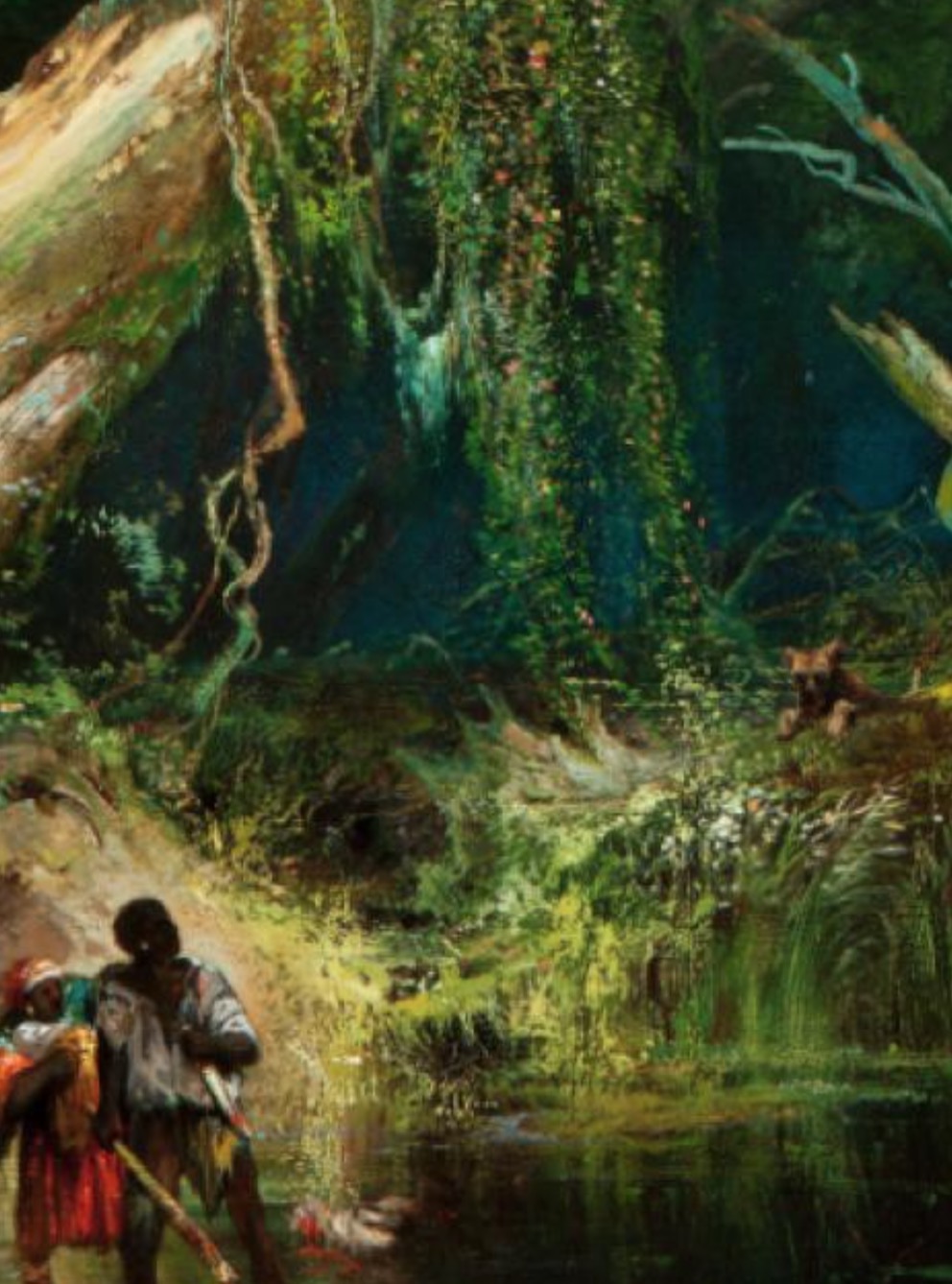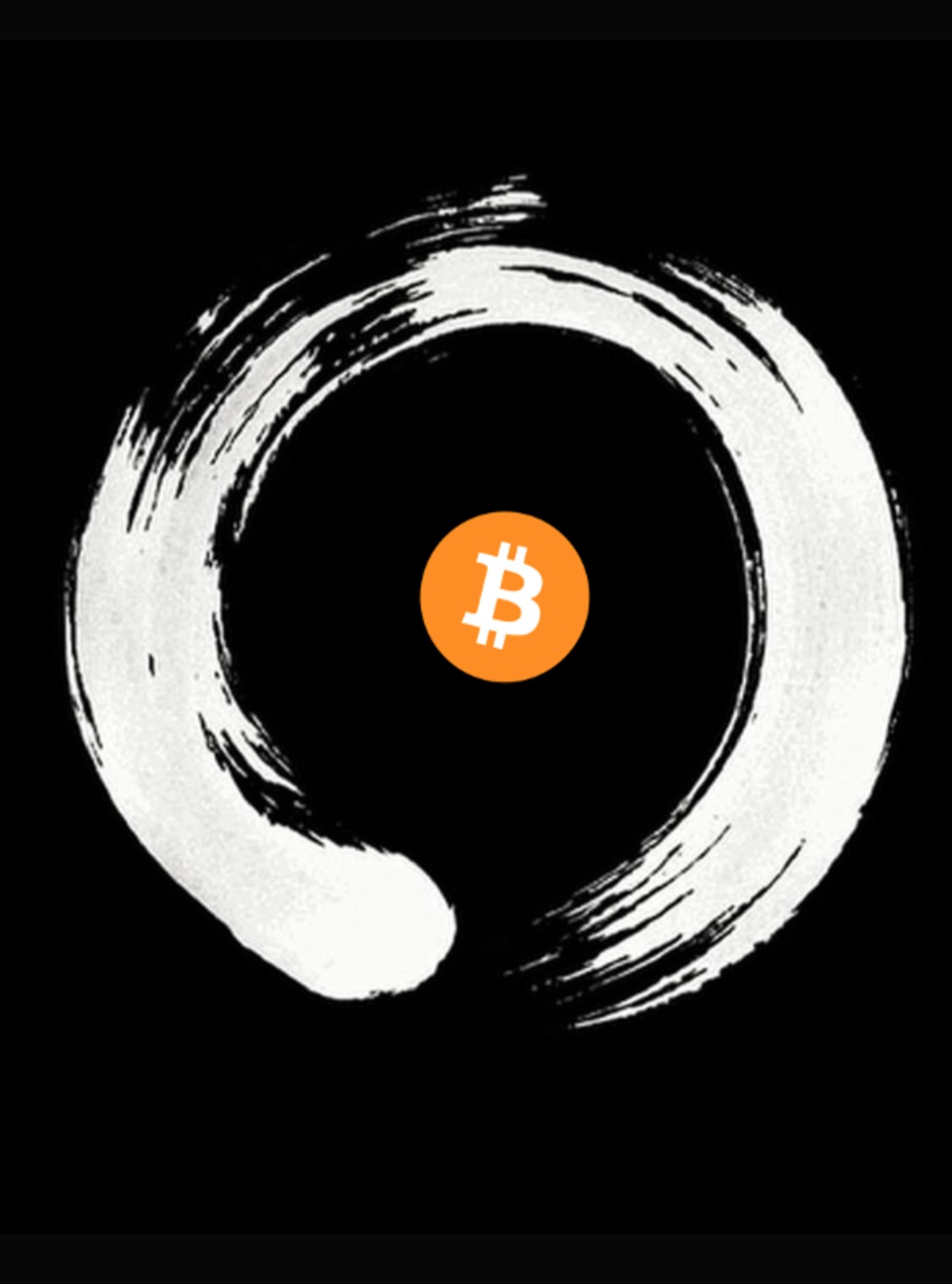An Open Letter to Robert Breedlove
When I first got involved in Bitcoin in summer 2017, the proverbial rolling, fertile hills in our community had been plowed and plenty of seeds of orange pill wisdom had been sown. Many people who had come in well before me and the class of ’17 had done terrific, worthwhile work fertilising the soil with knowledge and truth. Still, at first glance it was sometimes easier to spot the rambling shitcoin weeds than the vibrant Satoshi shoots in front of our feet.
Many intellectual thinkers have come in to aid and keep the land lush and rich while banishing the shitcoin bramble. But not many have had a bigger impact on the the discussion than Robert Breedlove.
From his early contributions like ‘An Open Letter To Ray Dalio re: Bitcoin’ to his Magnus Opera ‘The Number Zero And Bitcoin’ and ‘Masters And Slaves Of Money’ he has quickly become one of the most important voices in the our sphere. He has had the title of Bitcoin’s very own Philosopher King bestowed upon him by the plebs, a title I’m sure must give him some pride whilst maybe squirming slightly on hearing it said.
Not only is he helping expand the minds and ideas of us, the toxic maxi plebs, but he has proved a source of education and inspiration to heavy hitters from the legacy world too.
His deep and cosmic exploration of money, finance, history, philosophy, science and literature has added a breadth to the discussion that means new entrants are now greeted with fields of gold – abundant and intellectually nourishing crops – that we could only dream of in the last bull cycle.
As Bitcoin grows, so do we. As a Bitcoiner in the public eye, it has been a joy to witness Robert’s evolution. I remember seeing and hearing him on the Pomp podcast in 2019 – incredibly well prepared and professional. Pages and pages of meticulous notes – a testament to his studious nature – never deviating too far from his prepared presentation. Now we see him free dive into the cosmic abyss with regularity. Whether that is with heavy-weights such as Michael Saylor and Jeff Booth – on his ‘What Is Money’ show – or his casual but no less astute exploration of everything Bitcoin with fellow cosmonauts and deep thinkers John Vallis, Erik Cason & American Hodl.
Despite witnessing this growth and the ease with which he now adlibs his way around challenging ideas, I’ve often found myself wanting to know more about him as a person. What lead him to this point? What experiences and realisations primed him for Bitcoin to the point of reorienting his entire life around it?
Intrigued, I asked Robert to write a sort of auto-biographical piece for 21ism but I never anticipated something this deep and honest. It’s as eloquent and deep as anything you might expect from his work, only this time he’s turned the analysis and focus on himself. Together with the audio interview with our mutual good friend John Vallis, it gives a rare insight into the man that is regenerating economic ideas and nourishing the Bitcoin landscape, creating the perfect conditions to grow resilient and informed hodlers – now, and in the future.
Thank you for all your work Robert.
Badders
________________________________________________________
Check out John Vallis’ absolutely stellar chat with Rob (linked above) where they talked about: A civilisation built on Bitcoin, freedom and the principle of sovereignty – The moulding of mind and body to transport yourself to a destination of your choosing and launching a “crypto” fund in the bear market. The highlight of the session was hearing how his testing childhood informed his independence, stoicism and determination in later life. How his grandfather fought in the army to tear down enemy financial infrastructure and how his experiences in the war started an inter-generational domino effect that brought trauma but also very poetically lead to Rob fighting in war to tear down financial infrastructure too.
Show him your appreciation on Twitter here. Thanks for stopping by!
ARTICLE COLLECTION
#BITCOIN IS HOPE
Hope moves us forward, and our values chart the way. Money is intended to be a safe harbor for economic value—not a constant cause of stress, worry, and entrapment, as it is in the world today. A fundamentally dishonest money, fiat currency ruins our relationships with the intrinsic entropy of nature and our fellow humans. To rejuvenate hope for more harmonious human action in the world, we must set our sights upon the invaluable aims of honest money, entrepreneurship, and civilization.
#Number Zero And Bitcoin
Satoshi gave the world Bitcoin, a true “something for nothing.” His discovery of absolute scarcity for money is an unstoppable idea that is changing the world tremendously, just like its digital ancestor: the number zero.
Essay written by R. Breedlove for 21ISM
Freedom is my “why” for Bitcoin. Tracing my life to the beginning, I have my mom to thank for my fierce curiosity and love of freedom. Before the age of 5, my Mom always told me: “it’s not what you know, but if you know how to look it up.” Had I heeded her wisdom more closely, perhaps I would’ve been an early investor in Google. My mom placed a big emphasis on individual tenacity, doggedness, and self-reliance. Her policy with me as a curious kid was that if I was old enough to ask the question, then I was old enough to know the answer. However, she took exception to the policy when I started asking her if Santa Claus was real. But one day, I spent 12 hours straight proclaiming that Santa Claus was bullshit, explaining all the scientific reasons why the fat magic man was an impossibility. After a tiresome haranguing, she capitulated and admitted the fiction, but said she would never admit telling me the truth if I brought it up to other kids (I immediately told all my cousins and friends, and she kept her word). By emphasizing the power of education, my mom gave me a vehicle through which I could engineer my own development.
An ability to rapidly learn and adapt to changing conditions came in handy early on in my life. My mother and father separated when I was 5. From then on, my life became characterized by much more irregularity and instability. My mom, my brother, and I moved from place to place for the next 3 years. This was especially tricky for me, as I was constantly enrolling and exiting different school systems and social circles. I learned to be adaptive, and gained some meta level understanding of power dynamics between teachers and students. Constantly re-introducing myself and telling my story gave me practice being persuasive and instrumentalizing my language to accomplish aims. Seeing how different teachers each used their own unique toolkits of “carrots and sticks” to corral the human action of students helped me become aware of the many layers of games being played in the social domain.
Around the age of 12, I started becoming involved in athletics thanks to a strong push from my stepfather Frank. Sport was a new frontier in which to apply the vehicle of self-engineering, this time to my physique, visualization, and training habits. Having become a bit pudgy after a few years of eating lots of sugary foods, I decided that physical activity, copious water consumption, and healthier eating were going to become key components of my lifestyle repertoire. Through study, I developed a relationship with my higher self; and through sport, I found the beast within.
Each of us is composed of an inner angel and an inner animal. From above, we are imbued with intelligence, principles, and values which guide our actions in the world. And from below, we are constituted of dirt, metals, and other messy materials from the Earth. These more banal, animalistic elements are violent, ruthless, and purely Darwinian. Raw power emanates from the animal, but without channeling these energies properly in accordance with the guidance of the angel, they are inherently (self-)destructive. By consciously focusing them through the matrix of values, the maps of action drawn by the angel, these energies can be transformed into forces of productivity. Awareness is the harness by which the angel can control the animal. In the developmental arc of humanity, we are still crawling out of the muck of animality—an evolutionary path largely shaped by the incentive schemes we construct around ourselves.
In terms of incentives, few things are more potent than money. Money is the aperture through which we perceive things in the world relevant to our courses of action. If your family eats 30 pounds of beef each week, and beef costs $20 per pound, and you earn $50 per hour, then you know that each week 12 hours of your time will be devoted to paid work just to meet the basic energetic cravings of your family’s collective metabolism. Revenues and expenses are the “carrots and sticks” which govern the sphere of human action in near totality. When I look at my grandfather, the incentives he faced, and the patterns of action that followed, I discover the origin of a mighty influence in my own life. John Breedlove self-conscripted at the age of 17, forging his enlistment paperwork. First deployed in the Korean War, he was wounded in combat and soon became a POW, imprisoned in a narrow vertical hole dug into the ground such that he could only stand. He said the soldier that pissed on him every morning saved his life, as it kept him motivated to escape. Also contributing to his survival were the maggots which ate the infection out of his leg and arm, each of which suffered a knife wound. Eventually, he executed a daring escape, freeing other captive soldiers in the process, an act for which he would be later awarded a Purple Heart. Standing at 6’1” tall, John returned home weighing a spindly 96 pounds due to the starvation of imprisonment. Years later, John was deployed in a US special forces unit into Cuba, where his mission was the impairment of critical Cuban banking infrastructure. In essence, my grandfather was a US government funded “terrorist” tasked with crippling the financial architecture that was supportive of Soviet Russia during the Cold War.
Needless to say, John’s experience at war was traumatic. Zooming out, it is clear that Cuba was a flashpoint of the defining geopolitical contention of the 20th century between its dominant institutional forms—nation-states. This scale of organizational bloat and conflict were only possible because fiat currency enabled a few to harvest the economic surplus produced by millions. Had a hard money standard reigned, neither the US nor Russia could have grown to the scale of nation-state each would ultimately become. The control over money is an irresistible incentive, and having cracked the code to monopolize gold, every 20th century nation-state became centered on an anticapitalistic institution called the central bank. These twin competing resource strategies of statism—state capitalism and communism—were the products of the incentives related to monopolizable money. With control over money (and therefore people) firmly in place, each nation-state was then best equipped to maximize its own territorial expansion through the plundering of its own commonwealth. A collision of these interests is precisely what triggered the Cold War in which my grandfather was indirectly involved in Cuba.
20th century territorial contentions reached a climax in the Cuban Missile Crisis, where Soviet forces placed armaments within striking distance of North America. Following the US imperialist activities in Korea, the broader geopolitical frictions related to the Cold War contributed to the scathing of my grandfather’s soul, a wound that would fester throughout the rest of his life. Sent with a mission to destroy, John killed and destroyed, and his experiences serving the American fiat-currency-funded war machine ground down his humanity. He would return home a different man. Although he was always a good man, war flashbacks and other health issues impaired his competence as a parent. My understanding is that, as a girl, my mother was left with essentially zero supervision, contributing to her embroilment in many bad situations at a young age. She was abused and forced to grow up too fast. This would contribute to her later development of alcoholism, which would echo into my life as a rough childhood, one much different than hers, but with a similar outcome. Like my mom, I too became a child forced to grow up too fast. The living lie of fiat currency centralized power to the point of noxiousness: a poison that would infect my family across generations.
“A lie can run around the world why the truth is still putting on its shoes.” Lies are expedients, they can be used to cover up both intentional and unintentional errors. Since they can cover up errors, they prevent resources from being allocated to error-correction (the definition of intelligence). However, lies cannot persist over time, as the light of inquiry inevitability reveals reality. As Buddha said: “three things cannot be long hidden, the sun the moon the truth.” Reality, by definition, is that which persists over time. Truth then, defined as an accurate portrayal of reality, is timeless, meaning that it is immune to the ravages of time. Truth is inexpedient because it requires work to continually be discovered over time, as the only unchanging aspect of reality is that it is constantly changing. Truth in the pragmatic sphere is discovered through the process of inquiry intrinsic to competition: including debate, sport, and entrepreneurship. When the market for money was monopolized, competition was eliminated, and truth discovery failed. This breakdown culminated in the irredeemable promise called fiat currency: a tool great for expressing value across space but terrible for expressing value across time. As a purely truthful form of digital money with unchangeable rules that are clear for all to see, Bitcoin gives humans a tool that can express value across space and time with high fidelity through a network that is immune to monopolization. For these reasons, the magnitude of 20th century war machines in the Cold War cannot exist on a Bitcoin standard. This means that Bitcoin is the way we can interrupt the intergenerational echo of pain that hurt my grandfather John, my mother Susan, and me. Absorbing and healing from this wave of pain, instead of passing it on to my daughter, is important to me. This is why freedom is my “why” for Bitcoin.



